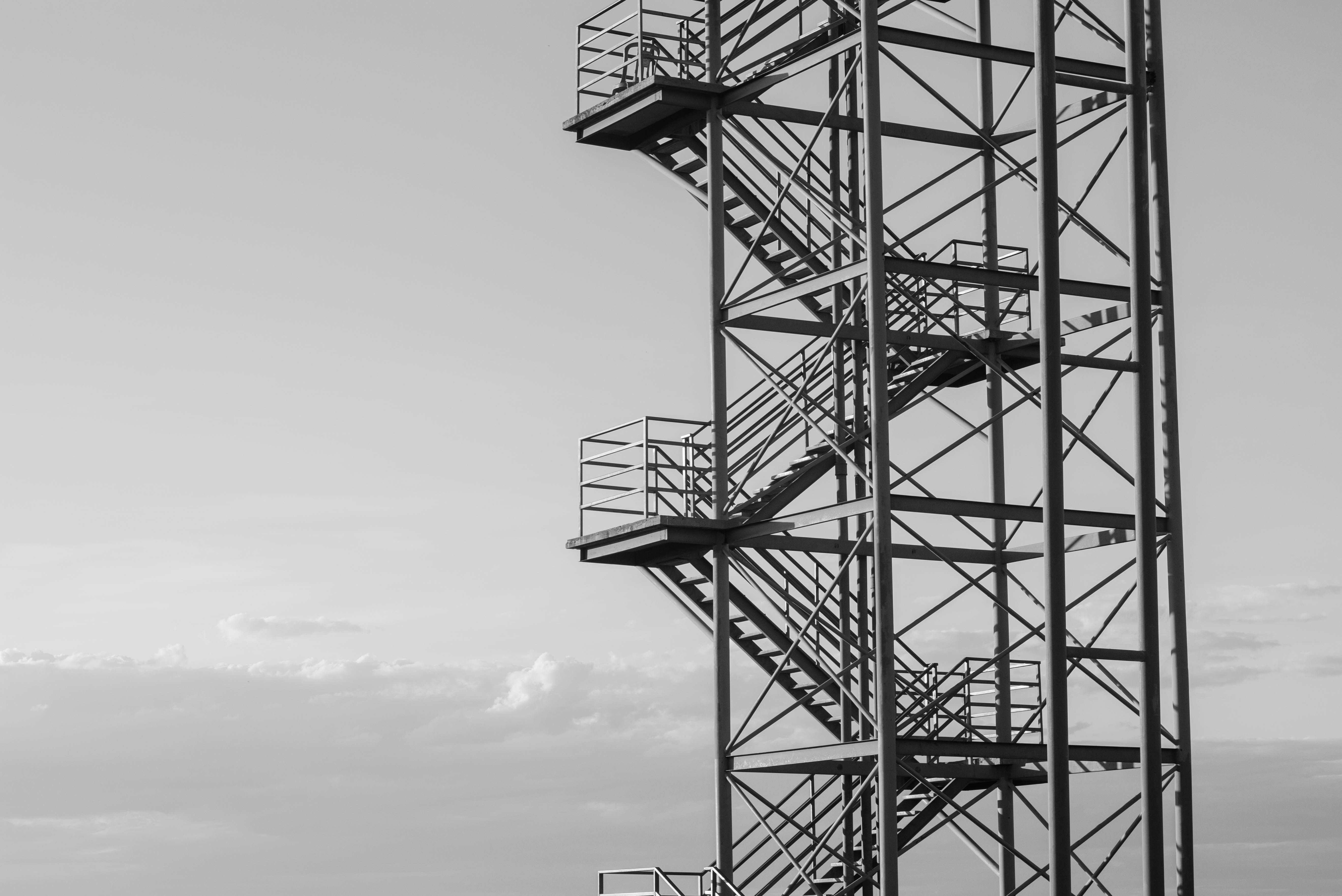The great capitalist lie (part 3)
Hunger, crippling poverty, rising inequality — putting capitalist misery into concrete numbers. The evidence is clear: we live in a dystopian hellscape.
To be able to function in late capitalism without being a psychological wreck, it is necessary to accept the insane as standard.
— Mark Fisher
In part one of this essay series, we have discussed the ideology around progress and development as well as the persistent propaganda of aid. Then, in part two, we examined hunger statistics in excruciating detail and found that… things have never been worse; there have never been more hungry people than today.
In this last part, we will finally discuss how Western powers have, with great violence, stifled any attempt at progress and moving beyond capitalism, and will conclude by putting capitalist misery and the dystopian status quo into concrete numbers. The question that will remain, in the end, is the usual one: “What can be done?” This will have to wait for another time. (Or read Lenin.)
Free trade is not freedom
Western neoliberal policies, often referred to as neocolonialism, served (and still do) to ‘open up’ the economies of the Global South, undermining their efforts to build self-sufficient industries and markets. The goal was to pave the path for Western multinational corporations to freely exploit labor and resources.
South and Central American, African, and (to a lesser extent) Asian countries were forced to abandon most types of public spending (healthcare, education, public infrastructure, etc.) and ownership, and had to consent to the increasing privatization of public lands and goods. Labor unions and other civic movements were systematically undermined, politicians bribed and paid off, lands enclosed, and the environment poisoned. Instead of profiting from these economic developments, in most cases merely a select few — those serving Western interests — were able to enrich themselves at the expense of all others.
Case in point: Nigeria. The following video is a great example of neoliberal plundering and scorched-earth policy. (Please return here after watching; I have so much to say!)
The Global South was left with corrupt, impotent governments and leaders unwilling or unable to serve their people — puppets dangling from the threads of capitalist suits. Those averse or slow to obey — Thomas Sankara, Salvador Allende, and many, many others — were quickly and effectively disposed of. The number of Western ‘interventions’ (some more subtle than others), exacerbated by the political climate of the Cold War, speaks volumes. So many brilliant revolutionary minds, ideas, and movements suffocated in their infancies.
The CIA, it must be concluded, is a terrorist organization. (This will get me on some list.)
The bloody war on true progress
A prominent example of Western intervention and capital hegemony is the violent overthrow of Chile's democratically elected first far-left government under Marxist Salvador Allende and the subsequent installation of General Augusto Pinochet as uncontested dictator in 1973. Pinochet, serving Western corporate interests, went on to impoverish and devastate an increasingly thriving country that had been praised as a shining example of Latin America's long-expected (yet never concluded) rise to the global stage. He and his associates, counting among them the so-called ‘Chicago Boys,’ a group of neoliberal thinkers/war criminals educated in the United States under the guiding hand of Milton Friedman, left a nation in ruins.1
Another example can be found in Thomas Sankara, a Burkinabé Marxist-Leninist revolutionary, human- and women-rights activist, anti-imperialist, and pan-Africanist. In a famous speech in the headquarters of the Organization of African Unity, Sankara, who became president of Burkina Faso in 1983, advocated for a cancellation of all debt Africa supposedly owed the Western world.2 He saw debt as a form of neocolonialism that served to further subjugate and exploit the African people and argued for African unification to fight this grave injustice.
‘The debt cannot be repaid,’ he said, ‘for if it is repaid, we will die.’ Three months later, he was assassinated in a coup widely believed to have been backed and/or executed by the French.3 These kinds of French interventions are not a thing of the past. Only recently, some African nations have finally mounted a sort of resistance.
The French government, it must be concluded as well, is a terrorist organization.
The list of Western capitalist interventions in countries of the Global South is endless and gruesome. The never-ending battle against socialism, communism, anarchism, and anything else that opposes the free market, corporate hegemony, and the lordship of capital took on almost bizarre forms of unjustified violence and ideological suppression (such as the ‘Red Scare’ in the US), eventually leaving us with the hungry, impoverished, boring, unfree, monotonous, and unequal world we live in today.
Read more about the violent rise of capital in this comprehensive essay series:
Capitalist misery in concrete numbers
In part two of this essay series on the great capitalist lies, we have discussed in much detail the ideological and statistical games played around hunger and malnutrition. Unfortunately, the same propagandistic manipulations also apply to other metrics of supposed progress such as poverty (despite UN claims to the contrary) and inequality — both international and within nations.
A more detailed examination of these can be found in Jason Hickel’s The Divide: A Brief Guide to Global Inequality and its Solutions. For our purposes, it suffices to highlight that:
1 — Since 1990, at the very least, there has been no progress toward reducing hunger whatsoever (earlier numbers are unreliable as we have examined).
On the contrary, there have never been more hungry people than today. The trend, which will be dramatically exacerbated by climate change and the accelerated unfolding of capitalism’s internal contradictions, unfortunately, points clearly to the worse. Certain climate-related tipping points such as the disintegration of Greenland’s ice sheet, which can result in abrupt and often irreversible changes, could lead to a near-exponential increase in the number of hungry people.4 Many more factors could influence this and, roughly speaking, we have no idea how serious it will get.
2 — Putting the poverty line at $5 per day, which is a far more realistic metric than the World Bank's official, and frankly absurd, $1.25 line, we find that, in 2010, approximately 4.3 billion people lived in poverty. Even after accounting for the hundreds of millions of people lifted out of poverty in China, this represents an increase of one billion people since 1981.5
Putting the poverty line at $10 per day, we find that 5.1 billion people lived in poverty in 2010. This represents a two-billion increase since 1981 and more than 70% of the world's population at the time. Some economists such as Lant Pritchett even call for a $12.50 per day line as a global minimum standard for human well-being (Pritchett worked for the World Bank for several years and is now a strong critic of the institution’s politics of manipulation and development propaganda).6 Again, the trend continues to point to the worse.
We are just as far from eliminating poverty as we are from ending hunger. In the face of all this suffering and misery, capitalism’s promise of ‘prosperity for all’ appears an unjustifiable perversion.
3 — Since at least the 1960s, global inequality has skyrocketed. In terms of GDP per capita, the gap between the United States and the Middle East and North Africa, for example, has grown by 154% between 1960 and 2014, 196% between the United States and South Asia, 206% between the United States and Latin America, and 207% between the United States and Sub-Saharan Africa.7 Similar figures apply to the disparities between Western Europe and the rest of the world.
This, however, does not even take into account the growing inequality within nations, with workers' wages mostly stagnant since at least the 1970s. Looking at real average hourly wages in the United States, we find that today's level is just slightly higher than in 1973 when wages trended up to a temporary peak.8 This marginal increase appears rather disheartening when we consider all the technological progress and productivity gains made in the last half-century.
Meanwhile, CEO pay has increased to unprecedented levels. While, in the 1970s and 1980s, CEO compensation was around 20 to 30 times higher than the average worker’s pay, in 2021, CEOs earned around 400 times more. This represents an increase of 1,460% since 1978.9
And whose fault is that?
Coincidentally, hunger, poverty, and inequality have all soared since the 1980s, when Western leaders decided to double down on neoliberal reforms. Curious, that.
Still, some argue that the billions of dollars in aid provided by Western institutions are proof of our efforts to improve things and that it’s the ‘developing’ nations’ own fault they continue to suffer (corruption by local politicians is often used as a convenient explanation). We talked about this in part one of this essay series.
We are giving them all this money and they are just wasting it! — or so the story goes. Truman’s ideology rings through all the way from the 1950s, instilling its convictions and prejudices in us at an early age.
The fact is that these billions in aid ($128 billion per year) pale in comparison to the outflows suffered by countries of the Global South due to, among other things, terms of unequal exchange ($2,66 trillion per year), abusive trade practices by Western nations ($1,75 trillion per year), capital flight ($973 billion per year), Western-dominated WTO rulings ($700 billion per year), repatriated profits ($486 billion per year), neoliberal structural adjustment programs that prevent the build-up of local industries and markets ($480 billion per year), and debt interest repayments ($211 billion per year).10
Debt, as Thomas Sankara so eloquently explained, can be seen as nothing but a tool for maintaining and extending Western dominion. The debt can never be repaid, for it rises exponentially, swallowing almost the entire budgets of ‘developing’ nations and leaving no room for social development or the construction of vital public infrastructure. Many countries are forced to constantly incur new debt to pay interest on the existing one.
Aid payments, often provided in exchange for opening up to Western corporatists, serve to maintain the status quo, appease the masses, and justify the current order. The West continues to plunder the Global South, relying on imperialist and colonial methods of appropriation to sustain levels of income and consumption, while, at the same time, claiming to help. It is a sobering fact that colonialism is not some distant memory, some long past nightmare, but rather the West's preferred method of wealth accumulation. The global economy is designed and built upon the continual exploitation of the Global South to maintain growth and the West’s economic and military dominance. An ultimately unsustainable practice, as I sincerely hope.
History will not look kindly on us.
I’m author, writer, and activist Antonio Melonio, the creator of Beneath the Pavement. If you enjoyed this long series on the great capitalist lies, please consider becoming a paid subscriber here on Substack or over on Patreon. It’s the best way to support Beneath the Pavement and help me put out more and higher-quality content.
If monthly contributions are not your thing (I understand), you can also leave me a tip or some coffee money over on PayPal. Thank you.
🕧 The After Hours: Ending poverty fifteen times over
In a 2021 paper, Jason Hickel, Dylan Sullivan, and Huzaifa Zoomkawala calculated an astonishing figure of $62 trillion (in 2011 dollars) or $152 trillion — when accounting for lost growth — that Western nations have expropriated from the Global South through terms of unequal exchange alone since 1960. This is enough to end extreme poverty fifteen times over!11
What economists call ‘unequal exchange’ thereby refers to the fact that due to their significantly greater bargaining power, wealthy nations can relatively freely dictate terms of trade. Hence, WTO trade agreements often prevent poorer nations from strengthening workers’ rights and wages, while enabling multinational corporations to scour the globe for the cheapest labor and goods.
The Global South is forced to compete with each other, eventually selling their labor, resources, and goods at much lower prices than they would have otherwise. Globalized corporations can then, in turn, sell those goods for exorbitant profit margins in the West. The paper’s authors emphasize that the intensity and scale of this exploitation increased significantly during the 1980s and 1990s when neoliberal reforms were forced upon ‘developing’ nations.
It all comes down to neoliberalism, my dear readers. I have a feeling this cannot and will not last much longer. What do you think?
Hickel, J. (2017). The Divide: A Brief Guide to Global Inequality and its Solutions. Random House.
The full text of Thomas Sankara’s speech “A United Front Against Debt” can be accessed here: https://www.marxists.org/archive/sankara/1987/july/29.htm
See, for example, this article: How Thomas Sankara, “Africa’s Che Guevara”, was killed to fulfill French neocolonialist ambitions. (2021, October 28). United World International. https://uwidata.com/21668-how-thomas-sankara-africas-che-guevara-was-killed-to-fulfill-french-neocolonialist-ambitions/
Lenton, T. M., & Ciscar, J. C. (2012). Integrating tipping points into climate impact assessments. Climatic Change, 117(3), 585–597. https://doi.org/10.1007/s10584-012-0572-8
Hickel, J. (see footnote 1)
See for example this article: Pritchett, L. (2014). A Development Agenda without Developing Countries? The Politics of Penurious Poverty Lines (Part I). Center for Global Development | Ideas to Action. https://www.cgdev.org/blog/development-agenda-without-developing-countries-politics-penurious-poverty-lines-part-I
Hickel, J. (see footnote 1)
Wage Stagnation in Nine Charts. (2015). Economic Policy Institute. https://www.epi.org/publication/charting-wage-stagnation/
CEO pay has skyrocketed 1,460% since 1978: CEOs were paid 399 times as much as a typical worker in 2021. (2022). Economic Policy Institute. https://www.epi.org/publication/ceo-pay-in-2021/
Hickel, J. (see footnote 1)
Hickel, J., Sullivan, D., & Zoomkawala, H. (2021). Plunder in the Post-Colonial Era: Quantifying Drain from the Global South Through Unequal Exchange, 1960–2018. New Political Economy, 26(6), 1030–1047. https://doi.org/10.1080/13563467.2021.1899153





